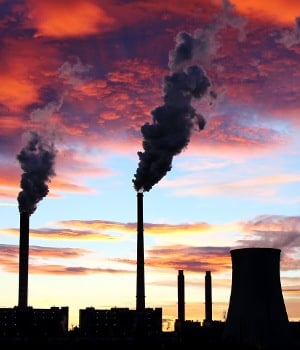
Sprinkled throughout the budget are dots – positive, encouraging dots – that show South Africa where government is headed in terms of environmental issues.
In fact, if you take the time to read through the hundreds of pages of the budget and connect the dots, it seems climate change challenges are among the top priorities for government.
For instance, Chapter 2 of the budget highlights that climate change is “starting to shape the manner in which the largest markets regulate imported and domestic products”.
It goes on to say that support for industries with high carbon emissions “is likely to threaten long-term export demand and growth, and could lock South Africa into a position of a low-value exporter”, clearly something government would like to avoid.
The Treasury team has also identified a number of opportunities to generate new economic activity.
“Jobs and investment can be created by drawing on private-sector skills and capital, while demand for carbon-intensive products can be managed with incentives and penalties,” Chapter 2 tells us.
Among the mooted incentives for actively responding to climate change challenges are ideas such as:
• Industrial policy to support businesses that can respond to climate change challenges, including producing new food technologies, electric cars, renewable-energy equipment, or energy- and water-saving devices.
• Targeted social interventions, including re-skilling and financial support for workers in sunset industries, rather than providing support to affected companies.
• Future-focused policy that takes cognisance of climate change, and would support efforts to raise youth employment in sectors such as business-process outsourcing, tourism and technology.
Those are the carrots for addressing environmental issues, but the budget also identifies a number of sticks – penalties to discourage bad environmental behaviour that could affect the environment.
This is evident in a number of new taxes and levies, including:
• The increase in the carbon tax rate;
• The increase in the vehicle emissions tax rate;
• An increase in the plastic levy;
• The announcement that government plans to explore the potential for new environmental taxes and reforms to existing taxes, such as a local air pollution emissions component being included in the fuel levy;
• The introduction of a road pricing charge;
• Adjusting the carbon dioxide tax on vehicles;
• The review of zero rating for fuels;
• The review of product taxes on electrical and electronic waste; and
• Increased tax on company cars.
At first glance, it seems that the focus is purely on cars, and that South African car owners are going to be paying dearly for the privilege of owning them – and that is on top of paying for the e-tolls.
But as one delves deeper, it’s clear that there is a very strong commitment to transition to a low-carbon economy.
For instance. Annexure D, which deals with public infrastructure developments, reiterates that the department of mineral resources and energy “continues to support the renewable energy market”. Government is also actively integrating climate-change considerations into existing tools to strengthen the climate resilience of infrastructure.
Managing local climate-resilience
There’s also support for local governments’ efforts to deal with climate change.
The budget identifies that, for many cities, strengthening the resilience of infrastructure and supporting low-carbon development of capital projects is a large-scale undertaking that requires strong partnerships and new sources of capital.
Some cities lack technical expertise or access to the capital required.
In response, Treasury’s “Cities Support Programme” helps cities increase their capital investments in climate resilience and low- carbon development through targeted technical assistance to strengthen project design, packaging and preparation.
The plan is that the programme will also strengthen cities’ capability to manage climate-resilient assets by integrating climate-change considerations into their planning tools.
It would be foolish for us – individuals, local businesses and multinationals – to ignore the ways in which the environmental dots connect with one another across the budget.
It’s clear that climate change and the environment are considered part and parcel of South Africa’s future economic planning – which puts us in a better position in the long term than at least one world-leading economy.
The bottom line: it’s going to be tough, but there’s hope, not only for South Africa’s economy, but also for our environment.
• Bernard Mofokeng is a director at law firm CMS RM Partners
 | ||||||||||||||||||||||||||
Get in touchCity Press | ||||||||||||||||||||||||||
| ||||||||||||||||||||||||||
| Rise above the clutter | Choose your news | City Press in your inbox | ||||||||||||||||||||||||||
| City Press is an agenda-setting South African news brand that publishes across platforms. Its flagship print edition is distributed on a Sunday. |




 Publications
Publications
 Partners
Partners








